What’s New in K-12 Competency-Based Education?
CompetencyWorks Blog
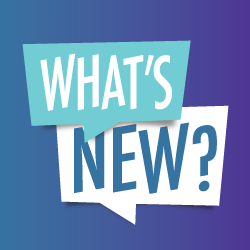
Competency-Based Education Resources
- Agency by Design: Making Learning Engaging – Building student agency is a central element of competency-based education. This resource from Derek Wenmoth, Marsha Jones, and Joseph DiMartino offers practical advice to education leaders and teachers in redesigning schools and classrooms to shift the ownership of learning to students.
- Competency-Based Learning Can and Should Replace Tracking – The second in a series from Eric Toshalis and Virgel Hammonds, this article makes a powerful case that tracking is inequitable by design—and particularly harmful for students already facing multiple forms of injustice. Fortunately, CBE provides an available, scalable alternative in which tracking makes no sense and that prioritizes growth, belonging, agency, and cultural responsiveness.
- Finding Your Path: A Navigation Tool for Scaling Personalized, Competency-Based Learning – KnowledgeWorks lays out 12 conditions necessary for scaling personalized, competency-based learning and helps learning communities develop a strategic action plan for district-wide transformation. Extensive guiding questions, rubrics, and examples of progress help schools and districts build a shared vision, collective efficacy, leadership, and community engagement.
- First Steps: A Teacher’s Guide to Competency Implementation – reDesign and the South Carolina Office of Personalized Learning have created an engaging, practical, and detailed guide to putting competencies into practice. Based on South Carolina’s competencies, but applicable to any competency framework, the guide offers resources for educators to choose entry points, refine rubrics, create learning targets, assess student work, and determine next steps.
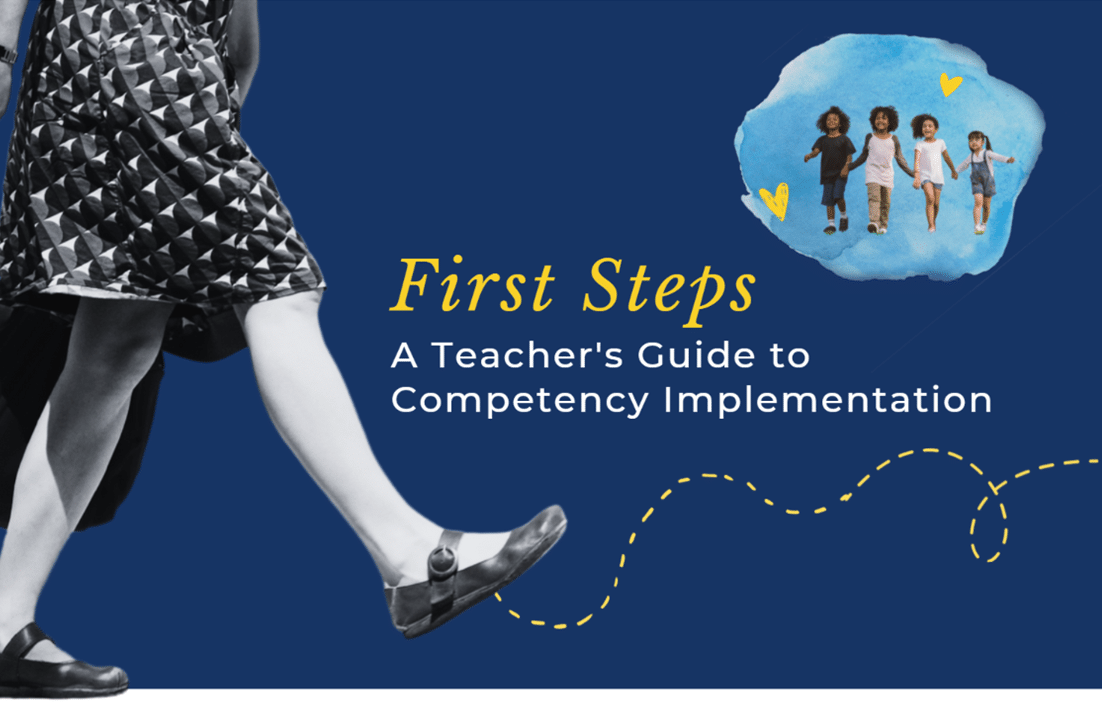
- Federal Policy Priorities: Charting a New Path for America’s Learners – The Aurora Institute’s report issues a call to action for federal education policy makers. It provides student-centered policy recommendations to modernize and diversify the educator workforce, advance educational equity, redesign assessments, rethink accountability, create learning pathways, support learning recovery, and bridge the digital divide.
- The Full Spectrum of Evidence for Student-Centered Learning – Traditional data collection approaches can fail to capture student growth in key areas that are highly valued in student-centered learning. NGLC’s toolkit captures a broader range of evidence, helping schools and districts evaluate program success and navigate complex innovation decisions by centering student voices.
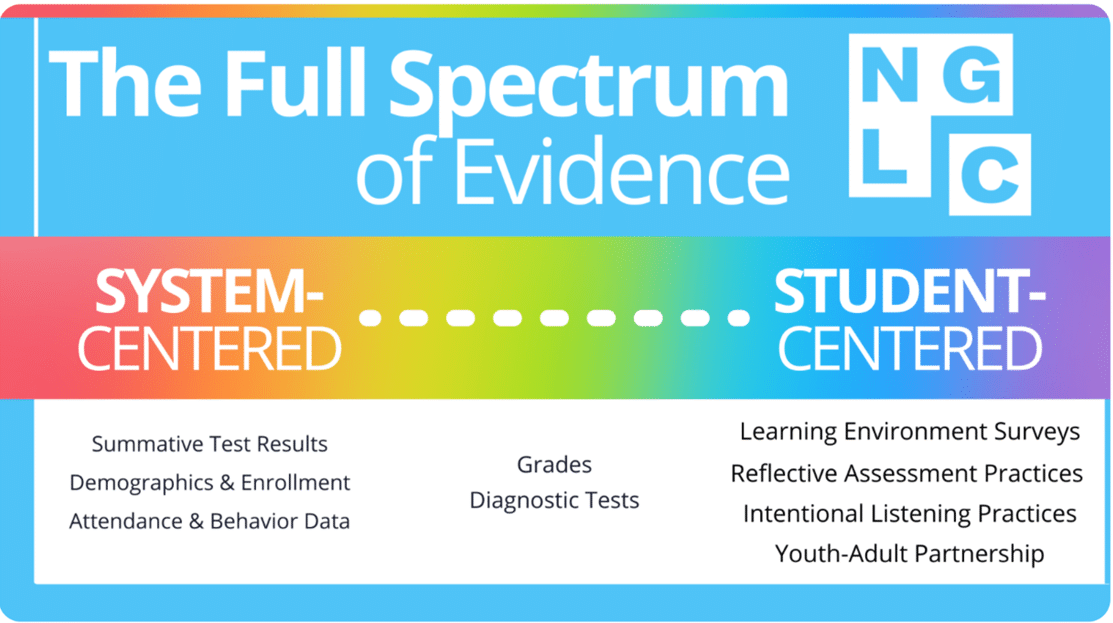
- Graduation Must Depend on Learning, Not Time: The Overdue Case for Competency-based Education – It’s inspiring to read this EdWeek opinion piece from an alliance of urban superintendents. With a combined enrollment of more than a million students, they call for “a competency-based system of education that looks nothing like our current model” and describe what it would look like.
- Habits of Success: Helping Students Develop Essential Skills for Learning, Work, and Life. This Aurora Institute report offers guidance for K-12 districts and schools by synthesizing knowledge on emerging practices for developing habits of success frameworks, promoting and assessing habits of success, and addressing equity and cultural considerations.
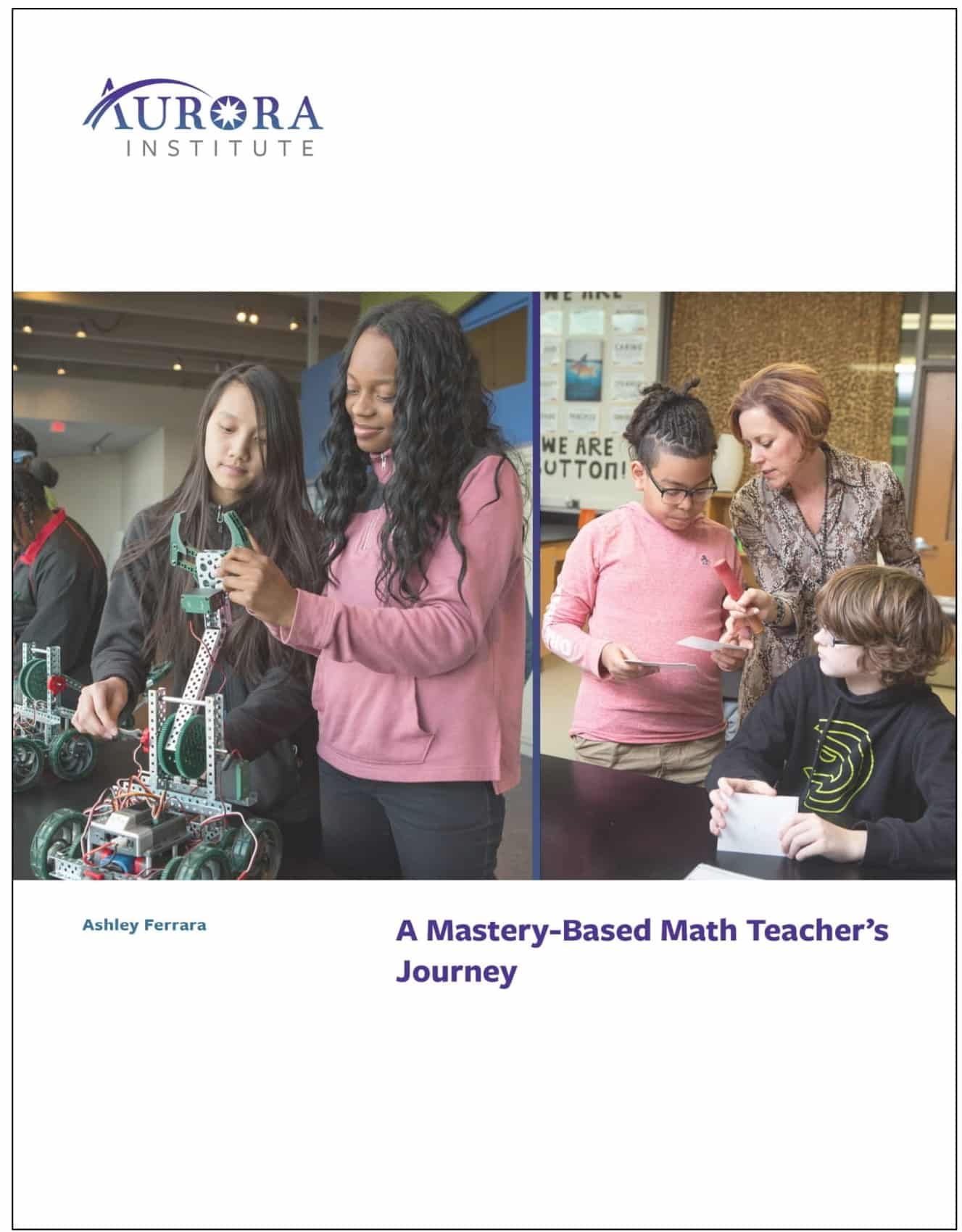 A Mastery-Based Math Teacher’s Journey – This report from Ashley Ferrara, a public high school teacher and administrator in New York City, shares a refreshing and candid account of her transition from traditional methods to mastery-based learning. Her journey of deep devotion, reinvention, improvement, and a commitment to all learners serves as a guiding resource for applying competency-based learning principles in the field.
A Mastery-Based Math Teacher’s Journey – This report from Ashley Ferrara, a public high school teacher and administrator in New York City, shares a refreshing and candid account of her transition from traditional methods to mastery-based learning. Her journey of deep devotion, reinvention, improvement, and a commitment to all learners serves as a guiding resource for applying competency-based learning principles in the field.- Measuring Forward: Emerging Trends in K-12 Assessment Innovation – CBE calls for assessments that are positive and empowering for students and yield timely, actionable evidence. A national movement is underway to design assessment systems with these characteristics that also provide the information needed for policy and resource decisions. This report provides a vision for assessment innovation, emerging assessment designs, approaches to building capacity for innovative assessment, and snapshots of innovations across the country.
- The Micro-credential Explorer from Digital Promise offers offer hundreds of competency-based micro-credentials, many on essential CBE topics, such as proficiency-based progress, creating performance assessments, competency-based rubric design, and designing competency-based professional learning experiences.
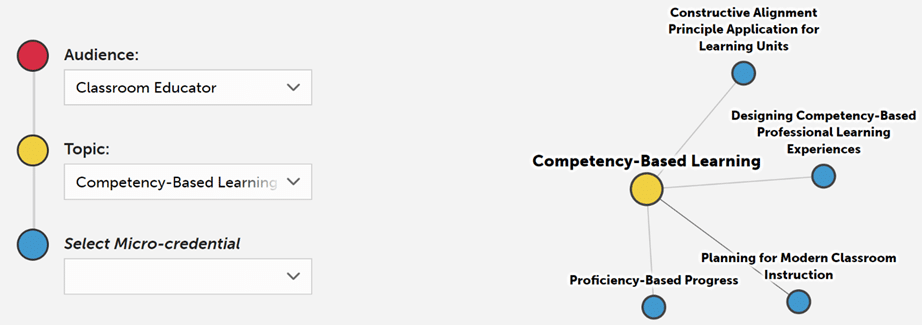
- A Path Towards Equitable Learning for Michigan Students – Chris Harrington and Christa Green of the Michigan Virtual Learning Research Institute interviewed leaders from eight Michigan school districts that are in different stages of implementing competency-based education to understand their motivations for systemic change and the catalysts and barriers that school leaders experienced as they worked through their transformation.
Eliot Levine is the Aurora Institute’s Research Director and leads CompetencyWorks.